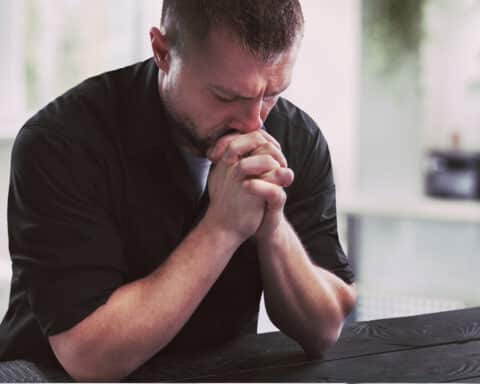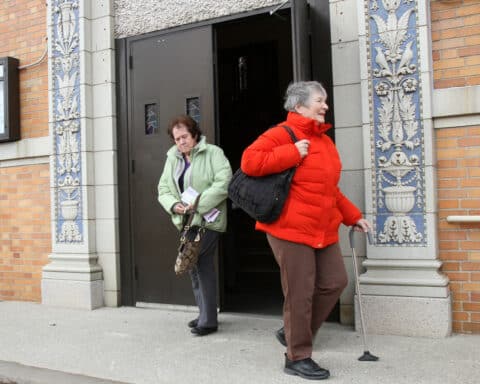
— Name withheld, via email
Answer: It is dubious that “all vaccines” have MRC-5 derived from aborted fetuses. Nevertheless, even with this possibility, a Catholic is still free to get a vaccine. While we are never free to directly cooperate in evil — for example, paying for an abortion, participating in cover-ups, assisting in a robbery or directly receiving stolen goods — we do, however, often find that we are linked to certain evils indirectly or remotely. Some of the stem cell lines used to develop vaccines were obtained from aborted fetuses — some as long ago as the 1970s, others more recently. Other stem cell lines, however, are not from such sources, hence we cannot always know from whence a vaccine was developed. Even if we are relatively sure that some cells came from aborted children, we are not directly cooperating in the evil of abortion or approving of it. Whatever our cooperation, it is very remote, indirect and nonintentional.
A similar example is when we go to the store and buy inexpensive clothing. One of the reasons it is inexpensive is that people, often children, are paid low wages to manufacture these clothes in foreign countries, and they live very poorly compared to us. There is little we can individually do about worldwide economic realities, hence buying an inexpensive shirt is not immoral, and whatever cooperation we have in economic injustice is remote and involves a lot of complexities in terms of global economic realities.
Some Catholics still choose in principle to refuse indirect cooperation with evil. While this is commendable, most moral theologians hold that participation in or use of products that involve remote and indirect cooperation is permissible. In global markets, it is hard to find products that are completely untainted by any injustice or relationships with remote parties who stand for things we oppose or do things which are wrong.
Attending recorded Mass
Question: Is it appropriate to make gestures while watching a recorded (not a live) Mass? Should we make the Sign of the Cross, sit, stand and kneel, and so forth?
— David Gardner, Panama City, Florida
Answer: Yes, this is proper. Even if the Mass was recorded earlier, you ought to participate as if you are attending live or in person. To be avoided is simply sitting on the sofa and passively watching the Mass. There may be some difficulties with standing or kneeling when one is sick; however, as a general norm, act as you would at a regular Mass.
Contrition for habitual sins
Question: What does it mean to make a firm purpose of amendment in confession? I have struggled with habitual sin for many years. I figure that at some point I will again fall. Are confessions invalid since my purpose of amendment may not be as good as it should, even though I do fight against these sins until I fall again due to weakness? On top of the guilt I normally experience due to sin, I now feel additionally burdened by this.
— Name withheld, via email
Answer: To make a firm purpose of amendment is not the same as making an absolute purpose of amendment. In fact, it may be argued that making absolute resolutions is not generally possible for human beings in our fallen condition. We can say we’ll never do something again, but we cannot really guarantee it due to our weakness. A firm purpose of amendment is a promise to try and avoid sins in the future and to stay away from near occasions of sin.
As for habitual sins, we may foresee a greater likelihood that we will fall again into such sins. Nevertheless, we agree to try and make progress and to gain the mastery that will increasingly free us. It is true that some people give way to sin, figuring they can just go to confession later. If that be the case, go anyway and tell the priest of your struggle with such an attitude. When one struggles with habitual sin that is serious or mortal but compulsive — for example, drinking excessively, pornography, masturbation — it is good to work with a regular confessor who can help set goals, keep you accountable and set a regular schedule for confession based on your struggles. The Lord knows our weaknesses. What he most asks is that you work with him in the sacraments toward the freedom he is offering you.
Msgr. Charles Pope is the pastor of Holy Comforter-St. Cyprian in Washington, D.C., and writes for the Archdiocese of Washington, D.C. at blog.adw.org. Send questions to msgrpope@osv.com.





